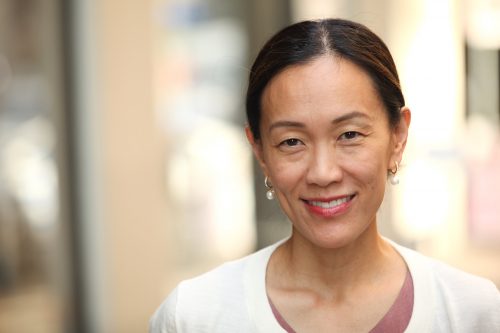When Esther Choo posted a chain of tweets about her interactions with racist patients in the emergency room, she never expected it to receive tens of thousands of retweets and over a hundred thousand favorites. One responding tweet reads, “We’ve got a lot of white nationalists in Oregon. So a few times a year, a patient in the ER refuses treatment from me because of my race.” Another says, “Sometimes I just look at them, my kin in 99.9% of our genetic code, and fail to believe they don’t see our shared humanity.” The enormous response to Choo’s tweets is bittersweet; while her words clearly resonated with many, they also demonstrated how deeply discrimination continues to plague society.
Choo has been using Twitter for almost a decade. Convinced by a friend nine years ago to join, she quickly realized it could be a powerful platform to advocate for change. Besides her personal account, Choo also promotes the accounts of @FemInEM, an organization dedicated to women in emergency medicine, and @WomenDocs4Hmnty, a group of women physicians serving those affected by humanitarian crises. “Over time, I’ve actually started to view it as part of my personal and professional obligation,” Choo said. “Going on Twitter and talking about some of these really tough topics is part of my identity now.”
Beyond Twitter, Choo works with organizations like FemInEM and Physician Mothers Group (PMG). She is a senior advisor to FemInEM, which addresses the issues holding women back in medicine and what can be done to overcome these gender disparities. PMG, a group of seventy thousand physician mothers across country, has a research arm that studies how to best support women throughout their careers by preventing things like burnout and depression. Choo also recently co-founded a company called Equity Quotient, which measures and addresses the culture of gender equity within healthcare organizations.
Before obtaining her medical degree from the Yale School of Medicine in 2001, Choo graduated from Yale College in 1994 with a degree in English. She returned to school and earned a Master’s in Public Health in 2009 from Oregon Health and Science University (OHSU), where she is now an associate professor.
Choo believes getting an MPH was the best decision she has ever made. She realized her interest in health disparities after working in several safety-net hospitals, which provide care for economically disadvantaged populations. Her research background now helps her address how to best take care of society’s most vulnerable patients. “I understand data much better,” Choo said, “And when I’m talking about a problem, I’m able to communicate it better. Then when I work a shift and I’m curious about things like ‘why do we do that?’, as a researcher I can turn that into a research project.”
According to Choo, the biggest obstacle in fighting discrimination in medicine is that society does not yet fully understand the problem itself. “I honestly think we’re a bit stuck on characterizing the problem,” she says. “If you look at the medical literature, there has been a surge of data coming out about the existence of the inequities experienced by physicians based on race, ethnicity, gender, and more, but there’s still incomplete data about the nature of problem. We all thought we could jump in and fix the problem, but to have solutions we need to understand it first.”
Choo’s advice is twofold: first, not to be blind-sided by discrimination and second, to foster conversation by calling it out when it happens. “As we move up to positions of influence, we need to realize it’s our responsibility to change the landscape of medicine for the next generation,” she said. Joe Robertson, the president of OHSU, demonstrated this last December when he released a statement saying that hate-speech and requests for specific physicians based solely on ethnicity would not be tolerated. Choo thinks the importance of this statement was not an immediate change of behavior but the solidification of OHSU’s culture. Many institutions lack such an explicit statement.
Being an activist can be frustrating, but Choo has identified the things that inspire her to persevere, such as her children and Christian faith. She also draws inspiration from the responsibility she carries as an alumna of an elite institution. “The minute you walk into Yale, you’re given a position of incredible privilege that almost nobody else gets,” she says. “My friends were the type of people who recognized this privilege and didn’t take it for granted. Every minute since has been about how we pay back.”

